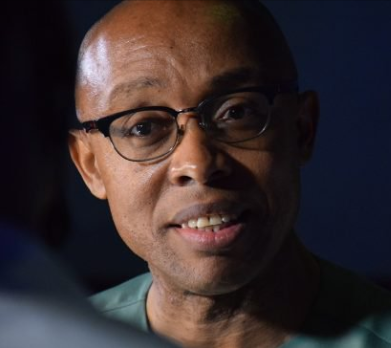
20 October, 2020
Joint Civil Society Statement in the Case of Prof. Chidi Anselm Odinkalu v. Kaduna State: An Opportunity to Protect Free Speech in Nigeria
Photocredit: Newswire
Together with 32 other civil society organisations and 89 human rights experts, we released a statement highlighting that the case brought by human rights activist and lawyer Professor Chidi Anselm Odinkalu serves as an opportunity for Nigeria’s judiciary to ensure that the protection of human rights in the country aligns with the Federal Republic of Nigeria’s constitutional, regional and international human rights obligations. In particular, this case provides an opportunity for the judiciary to reinforce the fundamental rights to freedom of expression, access to information, and civic participation.
On October 22, 2020, an important case comes for decision before the Federal High Court sitting in Kaduna, north-west Nigeria. The case – brought by Professor Chidi Anselm Odinkalu– will have an important impact on the rights of people in Nigeria to voice their opinions in matters of public interest and question those in authority.
We, the undersigned organisations and individuals, see this upcoming case as an opportunity for Nigeria’s judiciary to ensure that the protection of human rights in the country aligns with the Federal Republic of Nigeria’sconstitutional, regional and international human rights obligations. In particular, this case provides an opportunity for the judiciary to reinforce the fundamental rights to freedom of expression, access to information, and civic participation. The case before the Federal High Court challenges the constitutionality of criminal charges against Prof. Odinkalu, a renowned Nigerian human rights lawyer and former Chairperson of Nigeria’s National Human Rights Commission, following a televised interview he gave in February 2019 in Abuja, the Federal Capital. In the interview, Prof. Odinkalu challenged claims by the Governor of Kaduna State Mallam Nasir El-Rufai – made a day before scheduled elections in the State – that 66 members of the Fulani ethnic group had been killed in Kajuru, Kaduna State. Prof. Odinkalu stated that the Governor’s statement appeared to have no basis in reality and could not be verified by the relevant state agents. He further expressed concern that the statement could cause ethnic tensions leading to electoral violence.
Following the televised interview, on March 18, 2019, Prof. Odinkalu was charged by the Director of Public Prosecution (DPP) of Kaduna State with inciting disturbance, injurious falsehood, public nuisance, and furnishing false information. The case, which was initiated before the Magistrate Court in Kaduna, was fraught with numerous procedural irregularities including an undated case file with no file number; closed hearings from the public; and the continuation of the case in the absence of Prof. Odinkalu despite an order from the High Court staying proceedings in the case. On October 26, 2020, the State High Court of Kaduna will preside over the judicial review of the criminal proceedings in the Magistrate Court of Kaduna.
The judgment of the Federal High Court on October 22, 2020, presents a monumental opportunity for the court to recognise the right to freedom of expression and ensure that it is enforced in Kaduna State in accordance with the country’s human rights obligations. Government officials and people in authority are not exempt or protected from criticism.
United Nations special experts and mechanisms have specifically highlighted in reference to Nigeria, which includes all its Federal States, that public officials are required to tolerate greater criticism than the rest of society and that actions taken by them should not stifle public debate. While the right to freedom of expression may be restricted for public health and public security reasons, such restrictions – even when provided for by law – must be justifiable in a democratic society and must be necessary to achieve the stated purpose. Furthermore, any limitations must be the least restrictive means to achieve the objective.
The African Court on Human and Peoples’ Rights has held that seeking to impose a prison sentence, let alone corporal punishments such as lashings, for criticism of a public authority –whether true or otherwise – can never be necessary or proportional. Regional and international bodies have further called on all States to repeal criminal defamation laws, as well as all laws which effectively criminalise defamation, sedition, insult and false news. Where necessary, such infractions can and should be dealt with through civil proceedings, which should also be adequately proportionate and provide appropriate defences.
Given Nigeria’s regional and international obligations, as a signatory to several treaties including the International Covenant on Civil and Political Rights and the African Charter on Human and Peoples’ Rights, we are concerned that the Kaduna State government chose to undertake a criminal prosecution against Prof. Odinkalu for what is clearly protected speech.
The undersigned organisations and individuals thus look forward to the decision of the Federal High Court of Nigeria in this important case.



